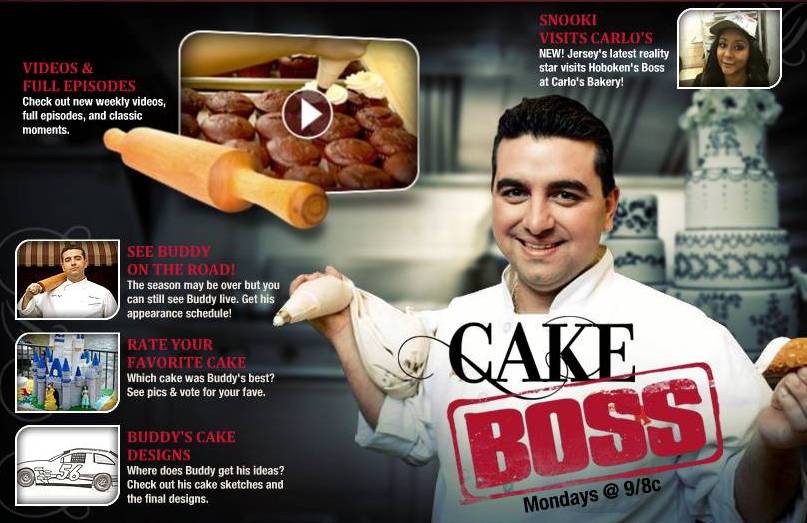 “Cake Boss” star Buddy Valastro
“Cake Boss” star Buddy Valastro
Buddy Valastro remains in the mix.
On Sept. 3, the Western District denied “Cake Boss” star Bartolo Valastro’s motion to dismiss Masters Software, Inc.’s claims against him for lack of personal jurisdiction and for failure to state a claim. (For background on the software company’s trademark infringement case over the TV show’s use of “Cake Boss,” see STL’s last post on the case here.)
In short, Western District Judge Richard Jones found Mr. Valastro’s efforts to promote his upcoming tour stop in Seattle subjected himself to the court’s jurisdiction.
“Mr. Valastro attempts to shift attention away from his Tour stop in Seattle by arguing that it will not occur until November,” the court found. “Typically, only a defendant’s contacts leading up to litigation are relevant in personal jurisdiction analysis. In this case, however, it is not Mr. Valastro’s upcoming appearance on which the court focuses, but rather on his efforts to promote that appearance and sell tickets via the Tour Website. The Tour Website offered tickets for sale to all tour shows at least as early as June 28, 2010, the date on which Masters filed its opposition to the instant motion. Masters filed its amended complaint on May 21, 2010, and absent evidence from Mr. Valastro to the contrary, the court assumes that the Tour Website was online at that time as well. This is not an unreasonable assumption, given that the first show that the Tour Website promotes was in Pennsylvania on June 23, 2010.”
The court added: “Masters’ evidence gives rise to an uncontroverted inference that Mr. Valastro or his designee has intentionally targeted Washington residents for the sale of tickets to his Tour appearance in Seattle in November. As the court has noted, Mr. Valastro provides no evidence regarding the Tour or the Tour Website, other than to note that another entity claims a copyright in the Tour Website and credit for producing the Tour. Mr. Valastro does not, however, contend that he is merely a pawn, appearing in the Tour solely at the bidding of some unnamed master. Mr. Valastro’s participation in a Tour (and a Seattle Tour stop) focused entirely on him and his Cake Boss persona gives rise to an inference that Mr. Valastro himself has intentionally targeted Washington. Mr. Valastro offers no evidence to the contrary.”
The court gave three reasons why Masters had stated a claim against him.
“First, Masters has plainly stated a claim based on Mr. Valastro’s activities in promoting the Tour, as the court has already discussed.
“Second, contrary to Mr. Valastro’s contentions, Masters has alleged sufficient facts from which a jury could find Mr. Valastro personally liable for harm arising out of the airing of Cake Boss. Mr. Valastro asserts, in essence, that he cannot be personally liable for Discovery’s [the television network’s] actions. The complaint, however, alleges two facts inconsistent with this assertion. First, it alleges what this court has already noted, Mr. Valastro is not merely a pawn in Discovery’s promotion of Cake Boss, he is the star of the show. Second, in his capacity as star of the show, Mr. Valastro represented to Masters in March 2009 that he had the power to influence Discovery’s decisions with respect to the show’s name. These allegations are sufficient, at the pleading stage, to state a claim against Mr. Valastro.
“Third, Mr. Valastro argues that Masters does not state a tortious interference claim against him. That claim is based on allegations that Mr. Valastro personally contacted a bakeware supplier with whom Masters had contracted and threatened that TLC would take legal action if the supplier did not cease the sale of CakeBoss-branded bakeware. Mr. Valastro suggests that he was acting on TLC’s behalf, not his own. Mr. Valastro is free to make that factual argument to a jury. It is insufficient as a basis for a motion to dismiss.”
The case cite is Masters Software, Inc. v. Discovery Communications, Inc., No. 10-0405 (W.D. Wash. Sept. 3, 2010) (Jones, J.).